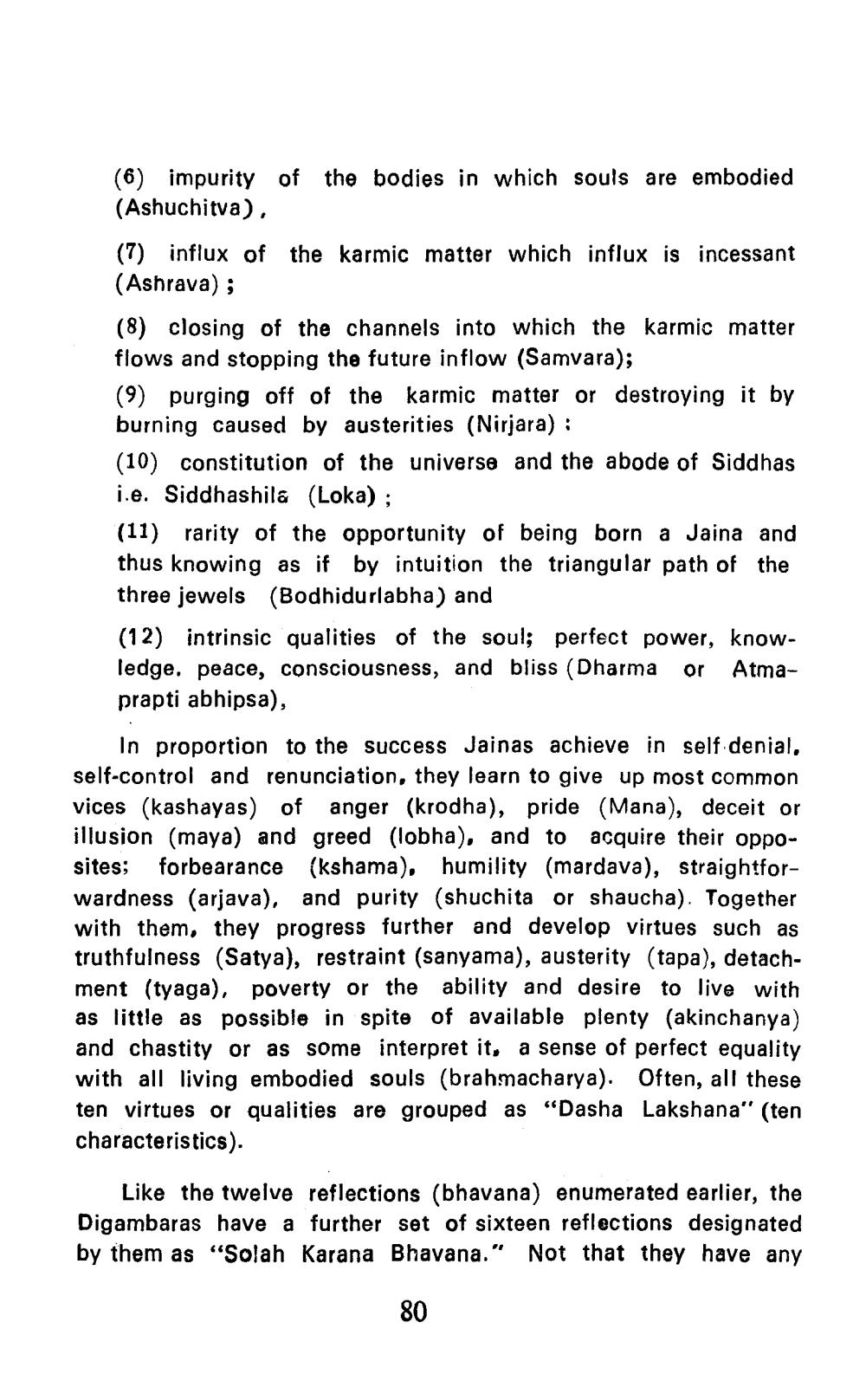________________
(6) impurity of the bodies in which souls are embodied (Ashuchitva),
(7) influx of the karmic matter which influx is incessant (Ashrava);
(8) closing of the channels into which the karmic matter flows and stopping the future inflow (Samvara);
(9) purging off of the karmic matter or destroying it by burning caused by austerities (Nirjara):
(10) constitution of the universe and the abode of Siddhas i.e. Siddhashila (Loka);
(11) rarity of the opportunity of being born a Jaina and thus knowing as if by intuition the triangular path of the three jewels (Bodhidurlabha) and
(12) intrinsic qualities of the soul; perfect power, knowledge. peace, consciousness, and bliss (Dharma or Atmaprapti abhipsa),
In proportion to the success Jainas achieve in self denial, self-control and renunciation, they learn to give up most common vices (kashayas) of anger (krodha), pride (Mana), deceit or illusion (maya) and greed (lobha), and to acquire their opposites; forbearance (kshama), humility (mardava), straightforwardness (arjava), and purity (shuchita or shaucha). Together with them, they progress further and develop virtues such as truthfulness (Satya), restraint (sanyama), austerity (tapa), detachment (tyaga), poverty or the ability and desire to live with as little as possible in spite of available plenty (akinchanya) and chastity or as some interpret it, a sense of perfect equality with all living embodied souls (brahmacharya). Often, all these ten virtues or qualities are grouped as "Dasha Lakshana" (ten characteristics).
Like the twelve reflections (bhavana) enumerated earlier, the Digambaras have a further set of sixteen reflections designated by them as "Solah Karana Bhavana." Not that they have any
80




